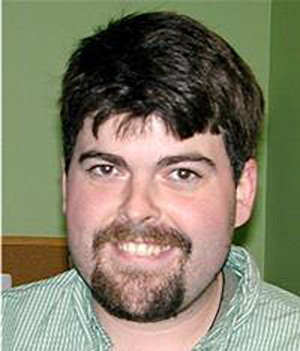NOT ANOTHER TV DAD
★ ★ ★ ★
LEARNING POLITICS

By CL Bledsoe
I was in a band while I was in college, and we needed gigs. It was a small town without a lot of venues. I’d met some political types, and the thing I noticed was they were always having rallies, often with bands. This was how I came to join the progressive students collective—I should clarify the name: I don’t actually know what the name was. Some industrious soul had set it up so that there was a kind of umbrella progressive students collective with a little funding—very important—and under that umbrella, other, more radical groups operated. This was because the university wouldn’t have allowed or given funding to these more radical groups. So, I joined a Communist group, an Anarchist group, a Green Party group, and generally attended whatever different meetings I became aware of.
The Communists had the best rallies because they always ordered pizza for everyone. They held them mainly on May Day and blew their whole budget on this. We played a few of these with some interesting bands. One I remember announced that they didn’t know how to play their instruments before their set. It soon became obvious that this wasn’t some publicity stunt; they really didn’t know how to play. I have to say that they’d gotten better since the last time I saw them. The drummer hit things with plastic bottles, and the singer/guitarist had some interesting insights to growl. The audience liked them so much more than us, it wasn’t even funny.
The Anarchists were the worst political group for two reasons. One, they never got anything done. They’d sit around and argue about whether they should march on the mall to protest its expansion (they were growing uninspired by this possibility because the last time they’d marched, no one was even arrested) or whether they should do something more dramatic. They could never come up with anything more dramatic that they were willing to do though. The other reason they were the worst was because they made fun of me for having a job. This came up when I couldn’t get off work, one time, to picket the mall (there was only one in town). Also, they weren’t really organized enough to book bands.
The Green Party group was basically the Communist group. Actually, a lot of the Anarchists were also in the Communist group. There were maybe 20 kids who filtered through all these political groups. They did other things, as well. A few of them started a movie night on campus and showed foreign and socially relevant films that wouldn’t come to town otherwise. They’d co-sponsor cultural events with various student cultural or rights groups.
The Democrat and Republican student groups seemed to have a dress code, so they were right out.
I’d made forays into DIY culture before. When I was in high school, some friends and I started a zine. This was before the internet was really a thing, in the early 90s. I can’t say that we had much of a goal other than addressing what we perceived as social injustices with humor. We were making fart jokes to power, basically. We made it to three issues before we were threatened with expulsion. A state school board law was passed because of our zine and an underground newspaper, basically disallowing publications to be sold on school campuses. When people started telling us that their copies had been stolen, we knew we were onto something.
There was a great magazine called Factsheet Five that was a kind of fanzine for zines. Through that, we connected with other zines all over the country. Having grown up in a small town in rural Arkansas (an even smaller one than I went to college in), this was a big deal. We felt that we were surrounded by people with totally different values and totally different perspectives, people who felt that their entrenched beliefs were more important than solving actual problems. Factsheet Five helped us realize we weren’t alone in wanting more out of life.
Similarly, as opportunistic as my motives were when I joined these student groups, I grew because of them. These were young people engaging with politics on a personal level. Before this, I’d been taught that politics was an abstraction, something that couldn’t be touched by people like me. It was a lot like religion; politicians sat in judgement from on high. All I could do was pray they were forgiving of me. It was a very jaded, ultimately hopeless attitude. But here were young people trying to figure out how to change things. There was something hopeful in this which I’d never encountered before. At their hearts, they didn’t have all the answers; they were more concerned with asking questions.

CL Bledsoe is the author of sixteen books, most recently the poetry collection Trashcans in Love and the flash fiction collection Ray’s Sea World. His poems, stories, and nonfiction have been published in hundreds of journals and anthologies including New York Quarterly, The Cimarron Review, Contrary, Story South, and The Arkansas Review. He’s been nominated for the Pushcart Prize fifteen times, Best of the Net three times, and has had two stories selected as Notable Stories of the Year by Story South‘s Million Writers Award. Originally from a rice and catfish farm in the Mississippi River Delta area of Arkansas, Bledsoe lives with his daughter in northern Virginia. He blogs at NotAnotherTVDad.blogspot.com

DEAR READER
At The Wild Word we are proud to present some of the best online writing around, as well as being a platform for new and emerging writers and artists.
If you have read the work in The Wild Word and like what we do, please put something in our tip jar.
THANK YOU FOR YOUR SUPPORT!
























Questions are always the best place to start. If you get a few answers you can live with you are a lucky man.